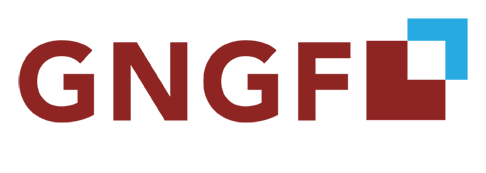GNGF Speaking Events
With such a wealth of knowledge, we love partnering with organizations around the country (and around the globe on occasion). The best way to share our expertise is often to speak directly to and with lawyers. We offer a wide variety of speaking programs both virtual as well as in-person, some of which are listed below. Contact us today to talk with our team about what presentation would best fit your needs.
WHAT THE BIG GUYS SAY ABOUT OUR CLE PRESENTATIONS
“Your presentation was just what we needed and the feedback was uniformly very positive. Thanks for a job well done and we hope to see you back here in Colorado.” Gary Abrams, Executive Director of Continuing Legal Education, Colorado Bar Association
“…including what I consider to be the best session in Digital Marketing that I have seen at a technology conference by…GNGF.” ABA Law Technology Today, Pegeen Turner
Read more of our testimonials from previous CLE events.
The Ethics of Marketing Online to Millennials
1 – 3 HOUR(S) Millennials are about to be the largest generation in the workforce. Being digital natives this group has higher expectations of your web presence. We will walk through the expectations of the typical millennial user and show you the tools and technologies you should be incorporating into your online presence to attract this generation. Of course, with these new tools also come new ethic concerns with regards to marketing.
WHAT ATTORNEYS WILL LEARN:
Focus Area #1: Expectations and habits of the typical millennial prospect Focus Area #2: Updating your web presence to support millennial users Focus Area #3: How to be an on-demand, 24/7, always-on law firm Focus Area #4: Ethical Issues Surrounding Posting on Social Media Focus Area #6: Ethical Issues Surrounding texting, online chat, and client portals
This CLE delivers a lot of educational content about the millennial generation with regards to working with them online as a prospect or a client. Law firms will leave the CLE with the best knowledge to navigate their online presence ethically when adapting it to the millennial prospect.
Most Common Ethics Mistakes Lawyers Make When Marketing Their Practice
1 – 3 HOUR(S) Many things have changed with concerns to your online presence. We will walk you through the ethics of establishing a successful online marketing presence and show you how to utilize Google, Avvo, social media, and other tools that can boost your firm’s online prowess without violating your state’s professional rules of conduct.
WHAT ATTORNEYS WILL LEARN:
Focus Area #1: Ethically and Properly Establishing Your Website Focus Area #2: Ethical Issues Surrounding Reviews and Solicitation Focus Area #3: Online Directory Listings and the Ethics of Claiming a Listing Focus Area #4: Content and Comparative Speech Focus Area #5: Ethical Issues Surrounding Posting on Social Media Focus Area #6: Blogging: What You Can and Can’t Do, Including Client Confidentiality & Disclaimer Violations
This CLE delivers a lot of educational content that law firms need to navigate their online presence ethically. Once the CLE is complete, you will understand the best practices for ethically using the Internet, as well as how to avoid the traps of self-reviewing, improperly commenting on blogs, and misrepresenting your services online.
How to Advise Clients, Manage Judicial Holds, and Discovery with Social Media
1 – 2 HOUR(S) This course outlines how to properly advise your clients about the risks and liabilities when they use social media networks. We will also discuss using social media as evidence and understanding judicial holds. To date over 20 states have adopted a version of the ABA Model Rule 1.1: Competence comment [8] that includes the term “relevant technology”.
Based on recent ethics opinions, lawyers are required to understand the basics of how social media platforms functions. In reality, if you want to effectively advise your clients on the impact of their behavior, you need to have a clear understanding of how social media platforms work. Also, if you are going to trial, you may need to be able to communicate about various social platforms.
WHAT ATTORNEYS WILL LEARN:
Focus Area #1: How People Use Social Media in Their Daily Lives Focus Area #2: Facebook, Twitter, Instagram, Pinterest, and More Focus Area #3: Judicial Holds and Deleting Social Media Information Focus Area #4: Discovering Issues Around Social Media Focus Area #5: When Is Something Public and When Is It Private?
After this course, you will be able to guide your clients more effectively, communicate clearly regarding issues surrounding publishing on social networks and know which possible areas should be avoided for ethical reasons. From the client to the courtroom, this course covers it all.
Ethics of Data Security
1 – 2 HOUR(S) This course is tailored to your state ethics and qualifies for ethics credit. We will cover the following focus areas and discuss the latest ethics opinions on technology and data security. One judge from Delaware referred to Model Rule 1.1, comment 8 and stated, “Professed technological incompetence is not an excuse…” [http://courts.delaware.gov/opinions/download.aspx?ID=215820]
WHAT ATTORNEYS WILL LEARN:
Focus Area #1: How Model Rule 1.1 on Competence, Rule 1.6 on Confidentiality, and Rule 5.3 on Nonlawyer Assistance are requiring law firms to be up to date on data security issues Focus Area #2: The most current “Reasonable Efforts” to understand about data security Focus Area #3: Issue with email security and confidentially sharing documents online Focus Area #4: Protecting Data: Passwords, Encryption, Public Wifi, and VPNs Focus Area #5: Phishing scams, malware, and ransomware that are targeting law firms. Focus Area #6: Cloud Computing and the latest cloud computing ethics opinions
Following this CLE course, lawyers will understand the various technologies available to them to help improve how they best manage and secure the technology and tools they utilize to help deliver legal services. We discuss the latest data security approaches law firms need to take to stay in compliance with their state’s professional ethics rules.
Most Common Ethics Mistakes Lawyers Make When Marketing Their Practice+ How to Keep Client Trust Even When Things Go Wrong
2 HOURS Our popular Ethics of Marketing CLE now combined with Keeping Client Trust Even When Things Go Wrong CLE gives you a one, two punch on ethically marketing to get new clients and then keeping and turning the new client into a passionate referral for your law firm.
Most Common Ethics Mistakes Lawyers Make When Marketing Their Practice
Many things have changed with concerns to your online presence. We will walk you through the ethics of establishing a successful online marketing presence and show you how to utilize Google, Avvo, social media, and other tools that can boost your firm’s online prowess without violating your state’s professional rules of conduct.
WHAT ATTORNEYS WILL LEARN:
Focus Area #1: Ethically and Properly Establishing Your Website Focus Area #2: Ethical Issues Surrounding Reviews and Solicitation Focus Area #3: Online Directory Listings and the Ethics of Claiming a Listing Focus Area #4: Content and Comparative Speech Focus Area #5: Ethical Issues Surrounding Posting on Social Media Focus Area #6: Blogging: What You Can and Can’t Do, Including Client Confidentiality & Disclaimer Violations
Keeping Client Trust Even When Things Go Wrong
Ever wonder why clients become so upset and you, their lawyer, are faced with explaining so much to alleviate your client’s anxiety as you watch trust slipping away? This CLE will investigate what’s at the source of the client’s reaction (sometimes over-reaction) and learn how to reduce and even eliminate these reactions.
This provocative (and sometimes humorous) presentation explores the question: How do we help our clients experience the legal system without walking away with a cynical view of the system, the judiciary, and even their own lawyer? The course will cover what lawyers can do, beyond the bare minimum ethical requirements, to fulfill our higher ethical calling to “prime” clients for the best experience, without making ourselves (lawyers) crazy.
This course covers the ethical requirements regarding client communications (ABA Model Rules 1.3 and 1.4) which establishes the minimum requirements and how a lawyer can easily provide communications beyond these minimums with little to no additional effort but with an exponential return. The course addresses how to eliminate grumblings, complaints, and malpractice claims with client relations and communications beyond the bare minimum requirements.
WHAT ATTORNEYS WILL LEARN:
- Focus Area #1: How meeting the bare minimum requirements of the rules of ethics governing client communication is inadequate to assure that client trust is maintained.
- Focus Area #2: Understand how the human brain (a client’s natural reaction system) is designed to sabotage the attorney-client trust.
- Focus Area #3: What the client needs to know to be “primed” to listen to instruction and advice from their lawyers, while also leveraging lawyers never to be on the “defense” to justify misunderstood events and “bad” news.
- Focus Area #4: Discuss an “advanced warning system” that is easy to implement that assures strong client trust is built and maintained.
Keeping Client Trust Even When Things Go Wrong is presented by Francine R. Tone, an appellate specialist and author of the #1 bestselling book What Every Good Lawyer Wants You to Know.
Once the CLE is complete, you will understand the best practices for ethically using the Internet. You will understand how to avoid the traps of self-reviewing, improperly commenting on blogs, and misrepresenting your services online. You will also have advanced warning system strategies to implement that build strong client trust that will not crumble when something goes wrong (wrong being defined as anything the client does not like).

